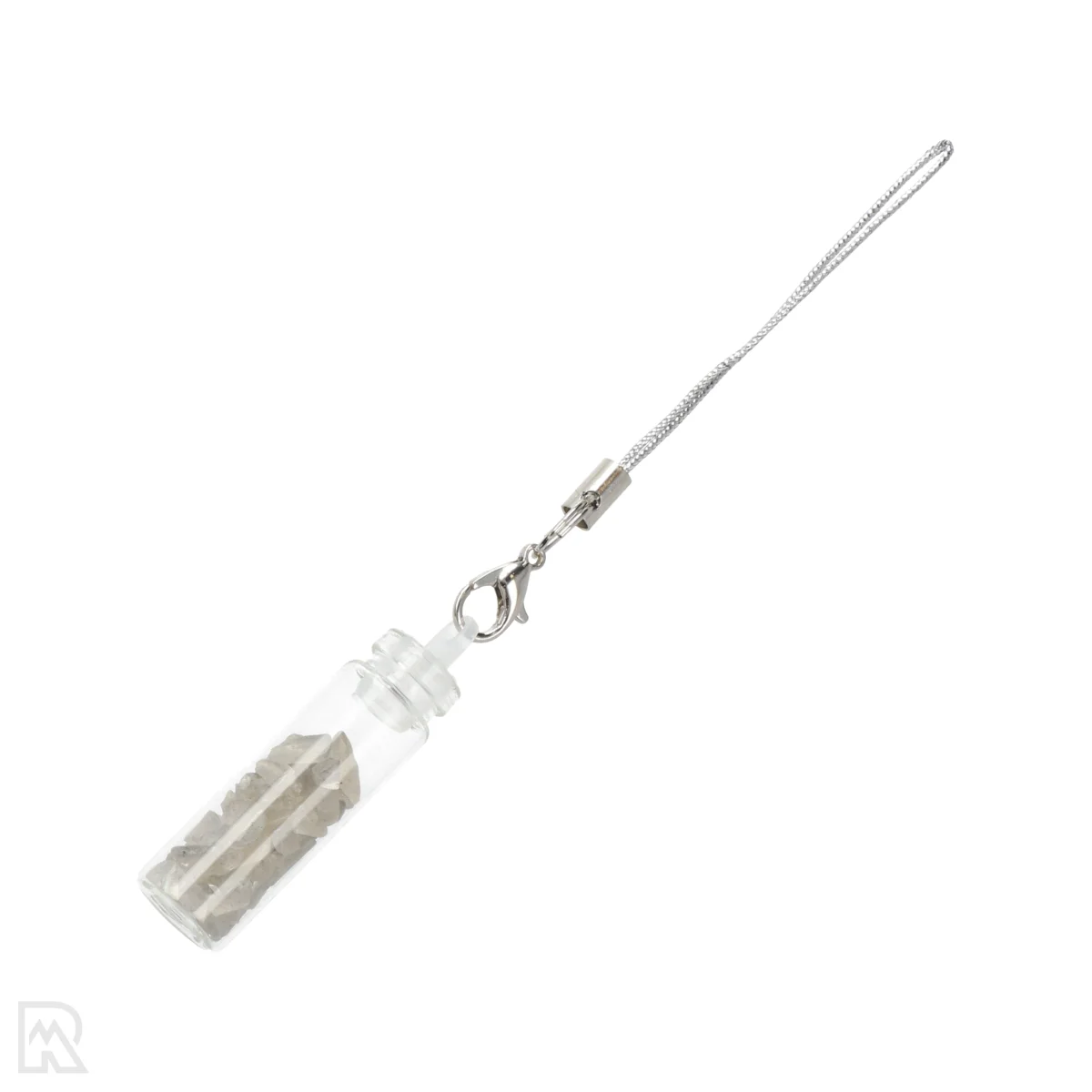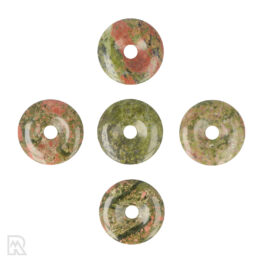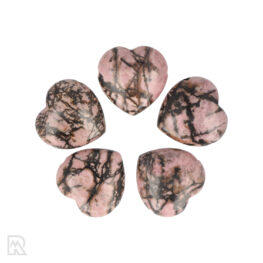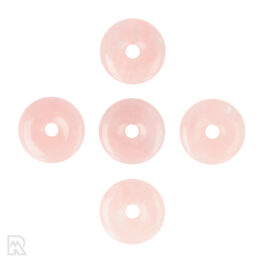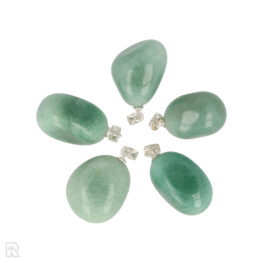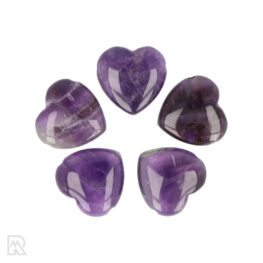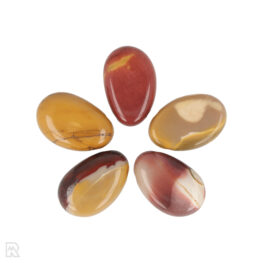| Gewicht | 0,05 kg (50 gr) |
|---|---|
| Dimensions | 1,1 × 1,1 × 3,5 cm |
| Sales Unit | |
| Type | |
| Form | |
| Origin | |
| SKU | 4998 |
Labradorite Lucky Bottle
Labradorite Lucky Bottle from China
Labradorite
Labradorite is a feldspar mineral known for its striking play of colours, also known as labradorescence. Depending on the incidence of light, colours such as blue, green, gold and purple can be visible. This optical property makes labradorite particularly popular as an ornamental stone.
Major deposits include Canada, Madagascar, Finland and Russia. The mineral belongs to the plagioclase, with the chemical formula (Ca,Na)(Al,Si)₄O₈. Its hardness is between 6 and 6.5 on the Mohs scale.
A well-known variant is spectrolite, a type of labradorite from Finland with a particularly intense play of colours.
Sources:
Mindat.org, Gemdat.org, Wikipedia - Labradorite
Selenite
Selenite is a clear to translucent variety of the mineral gypsum (CaSO₄-2H₂O). It is known for its glassy to pearly luster and often fibrous structure. A common form is selenite, which has a silky luster and occurs in long, fibrous crystals. Despite its name, selenite has nothing to do with the element selenium; the name is derived from the Greek word for moon, because of its soft luster.
Selenite forms in sedimentary environments during the evaporation of seawater and is found in countries such as Mexico, Morocco, the US and Australia. It is a soft mineral with a hardness of 2 on the Mohs scale, making it easy to work by hand. Almost all selenite sold on the Dutch market is satin spar; however, selenite is a market-accepted sales name.
Sources:
Mindat.org, Gemdat.org, Wikipedia - Selenite
